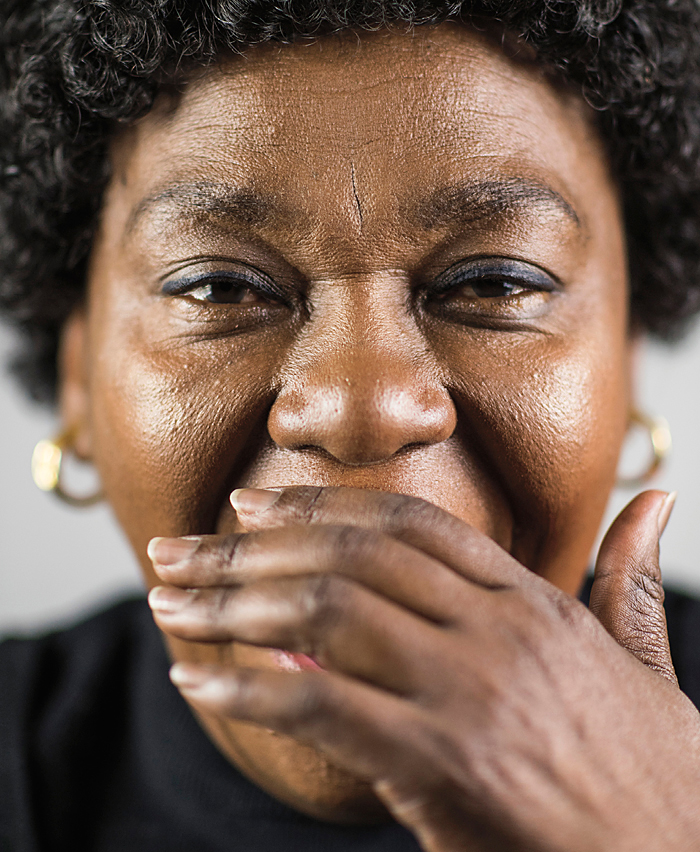
In her role as director of outreach for the Sexual Assault Centre of Edmonton, Christine Mhina draws on her experience in her home country of Tanzania, where she worked with women in rural communities.
Like many former international students, Christine Mhina, '98 MSc, '05 PhD, vividly remembers the shock of her arrival in Edmonton. "I didn't like the weather at all!" she laughs. "I just wanted to go back home."
The move hadn't been her idea. In 1995, Mhina's employer, Tanzania's Ministry of Agriculture, Food Security and Co-operatives, had arranged a scholarship for her to pursue a master of science at the U of A. And so, she packed up her children and headed to Canada.
Initially, it wasn't just the climate she found cold. "Back home, we live with people all the time," she says. "There are so many people. You're surrounded by your extended family, by your friends and neighbours. And here, everybody's just by ourselves."
After completing her master's degree, Mhina returned to Tanzania for a year and a half but came back to the U of A to complete a doctorate in women's empowerment, an issue she had fallen in love with in Tanzania. Working closely with women in rural communities, Mhina learned to view them as sources of knowledge rather than merely passive recipients of government programs. "I wanted to work with them personally, to find out what they know and to what extent they can address their own problems in their communities."
More recently, Mhina has applied this attitude to her own work, as director of diversity outreach, intake and court support for the Sexual Assault Centre of Edmonton. She helped launch a new research project studying how people in Aboriginal and immigrant communities deal with sexual violence. As in Tanzania, Mhina has found ordinary people have a lot to offer. "We underestimate their wisdom and their practical knowledge," she says. "By combining their knowledge and their practical wisdom with what we know, we can come up with better solutions. That inspires me."
This year, Mhina has an extra need to draw on that inspiration. After a December bout of malaria brought on by a suppressed immune system, she was diagnosed with multiple myeloma, a cancer that attacks the plasma cells that normally produce antibodies to help the body fight infection. However, Mhina hasn't even considered stopping her work. If anything, she gains strength from the women who surround her. "They are my friends," she says simply. "They are like my relatives."
Edmonton's climate may be as chilly as ever, but Mhina has found warmth here as well.
We at New Trail welcome your comments. Robust debate and criticism are encouraged, provided it is respectful. We reserve the right to reject comments, images or links that attack ethnicity, nationality, religion, gender or sexual orientation; that include offensive language, threats, spam; are fraudulent or defamatory; infringe on copyright or trademarks; and that just generally aren’t very nice. Discussion is monitored and violation of these guidelines will result in comments being disabled.